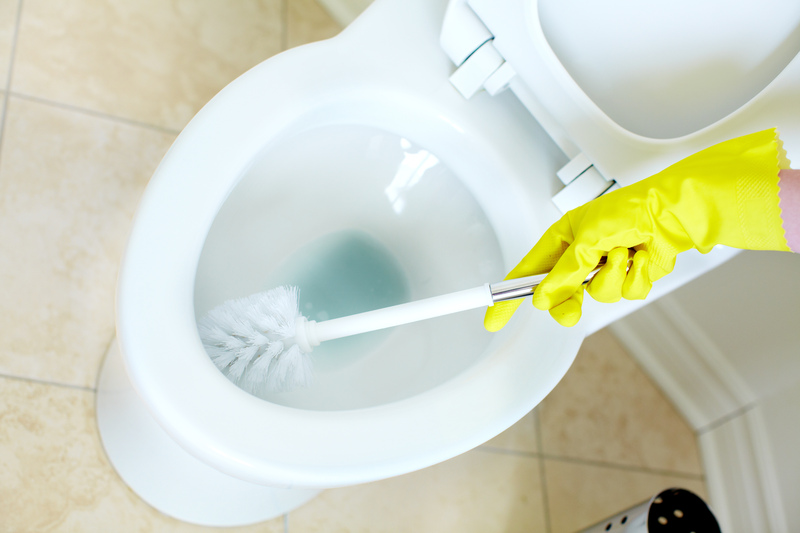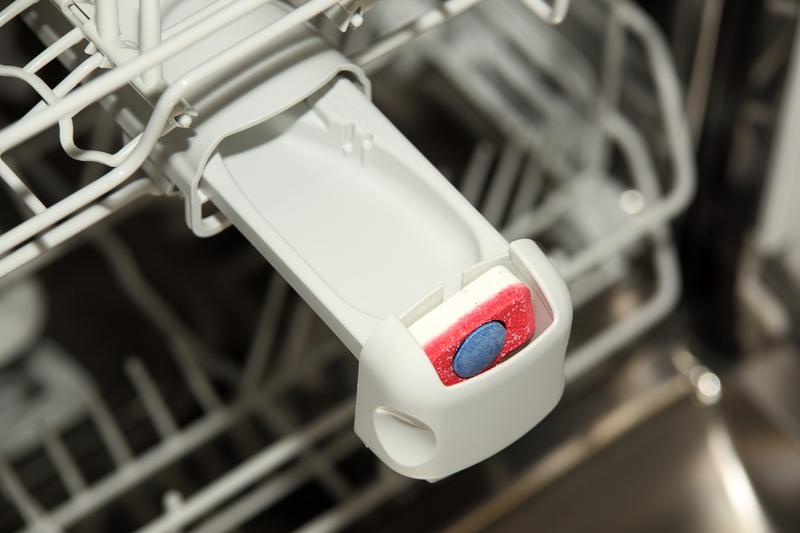Superior Air Quality: The Key to Wellness
Posted on 26/08/2025
Superior Air Quality: The Key to Wellness
Superior air quality is rapidly gaining attention as a vital component of modern-day wellness. As urbanization grows and the world confronts increasing pollution and indoor contaminants, prioritizing the air we breathe--indoors and outdoors--has never been more critical. In this comprehensive resource, we'll explore how maintaining clean air quality forms the foundation for not only improved health but also enhanced quality of life.
Understanding Air Quality and Wellness
The air we breathe shapes our health in profound ways. Each day, adults inhale thousands of liters of air, and children are even more vulnerable due to their developing systems. Wellness is defined as a holistic state of physical, mental, and social well-being, not merely the absence of disease. Air quality directly intersects with each aspect of wellness, influencing cognitive function, mood, cardiovascular health, and the body's defense against diseases.
What Defines Superior Air Quality?
- Low levels of pollutants: Efficient removal of particulate matter, volatile organic compounds (VOCs), carbon monoxide, and other harmful substances.
- Balanced humidity: Optimal levels between 30-50% reduce risk of respiratory issues and mold growth.
- Proper ventilation: Fresh air circulation limits indoor build-up of irritants.
- Absence of allergens and pathogens: Superior filtration effectively blocks dust mites, pet dander, pollen, and harmful microbes.

Health Benefits of Maintaining Excellent Indoor Air Quality
With most people spending over 90% of their time indoors, indoor air quality emerges as a critical aspect of overall wellness. Transitioning to optimal air standards within your home or workplace can foster countless benefits.
Physical Health Improvements
- Reduced risk of respiratory illnesses: Cleaner air diminishes the chance of developing or exacerbating conditions like asthma, bronchitis, COPD, and allergies.
- Boosted immune function: Superior air quality limits exposure to pathogens and toxins, helping our immune systems remain resilient.
- Enhanced cardiovascular health: Cleaner air reduces risks related to heart attacks, hypertension, and circulatory problems.
- Improved sleep quality: Fewer contaminants and balanced humidity levels support deeper, more restful sleep.
Cognitive and Emotional Benefits
- Sharper cognitive function: Well-ventilated and purified air spaces have been shown to improve attention, memory, and decision-making.
- Elevated mood and decreased anxiety: Superior air quality has links to better emotional regulation and decreased feelings of stress and tension.
- Less absenteeism at work and school: Better air equals fewer sick days and distractions caused by headaches or fatigue.
How Poor Air Quality Threatens Wellness
The dangers of inferior air quality extend far beyond mere discomfort. Exposure to air pollutants is one of the top environmental risks to global health. According to the World Health Organization (WHO), millions die prematurely every year due to complications from both outdoor and indoor air pollution.
Common Causes of Poor Air Quality
- Outdoor sources: Vehicle emissions, wildfires, industrial pollutants, urban smog.
- Indoor sources: Cigarette smoke, cooking fumes, mold, pet dander, cleaning chemicals, building materials emitting VOCs.
Chronic exposure to polluted air increases risk of:
- Asthma and allergy flare-ups
- Frequent headaches and eye/nose irritation
- Weakened immune response
- Chronic respiratory and heart diseases
- Decreased productivity and concentration
- Poor sleep quality and fatigue
Superior Air Quality Indoors: Steps To Achieve It
Achieving air excellence inside your living and workspaces is both achievable and crucial. Below are best practices and innovations to secure exceptional air quality indoors.
1. Advanced Air Filtration Systems
-
HEPA filters:
Capture at least 99.97% of particles down to 0.3 microns, including dust, pollen, and pathogens. -
Activated carbon filters:
Absorb VOCs, smoke, and odors for chemical-free air. -
UV-C purification:
Neutralizes viruses, bacteria, and mold spores.
2. Regular Ventilation and Air Exchange
- Keep windows open daily where possible to allow fresh air in and stale air out.
- Use exhaust fans in bathrooms and kitchens to remove moisture and pollutants.
3. Humidity Management
- Dehumidifiers and humidifiers keep air moisture balanced, helping control mold and dust mites.
4. Houseplants: Nature's Air Purifiers
- Some indoor plants like peace lilies, snake plants, and spider plants can help absorb toxins and boost oxygen levels.
5. Minimizing Chemical Use and Volatile Organic Compounds (VOCs)
- Choose low or zero-VOC paints, furnishings, and cleaning products.
- Store chemicals such as pesticides, paints, and gasoline outside the living area.
6. Regular Cleaning Regimens
- Dust and vacuum regularly with HEPA-equipped appliances.
- Wash bedding frequently to reduce dust mites and allergens.
- Address any water leaks or dampness swiftly to prevent mold.
Air Quality Monitoring: The Next Step Toward Wellness
Superior air quality begins with knowing your baseline. Today's smart technology offers real-time solutions to track air purity levels, humidity, and even individual pollutant sources.
- Smart air quality monitors: Track particles, CO2, VOCs, humidity, and temperature, alerting you to hazardous changes.
- Professional air assessments: Hire experts to perform comprehensive indoor assessments and suggest tailored improvements.
Outdoor Air Quality and Its Role in Health
Outdoor air impacts everyone. Urban smog, industrial emissions, and environmental changes contribute to the overall pollution each of us inhales. Superior outdoor air quality is essential for communities aiming for higher standards of living and public health.
Protecting Yourself When Outdoor Air Quality is Poor
- Monitor local air quality indexes (AQI) daily, especially during wildfire events or high-traffic periods.
- Use N95 or higher-rated masks during severe air quality alerts.
- Restrict outdoor activities on days of high pollution.
- Support clean energy and urban green space initiatives for cleaner community air.
Superior Air Quality at Work: Boosting Productivity and Wellness
Workplaces with excellent air systems score higher on employee wellbeing, productivity, and job satisfaction. Many business leaders are adopting wellness-driven air standards to optimize their teams' performance.
- Implement high-efficiency HVAC systems with proper maintenance.
- Encourage natural light and airflow for alertness and morale.
- Regularly evaluate for hidden mold or chemical buildup.
- Offer flexible work policies during peak pollution days.
By focusing on superior air quality in the workplace, businesses witness fewer absences due to illness, increased creativity, and more productive teams--key outcomes that directly impact a company's bottom line.
Environmental and Societal Benefits of Superior Air Quality
Cleaner air does not just nurture our bodies--it also preserves our planet for future generations. Enhanced air standards mean:
- Healthier ecosystems, as reduced pollutants lead to less soil and water contamination.
- Lower greenhouse gas emissions, contributing to slowed climate change.
- Improved crop yields and food safety.
- Decreased healthcare costs thanks to fewer pollution-related illnesses.

Investing in Air Quality: The Future of Wellness
The push for exceptional air standards is shaping the wellness trends of the future. From smart homes to green building certifications, new advancements drive progress in delivering the cleanest, purest, and safest air possible for every individual.
- Education and Advocacy: Get involved in community and governmental efforts to advocate for cleaner air policies.
- Upgrading infrastructure: Invest in new filtration, ventilation, and monitoring technologies in homes, schools, and workplaces.
- Research and innovation: Support research into advanced air purification and greener materials for buildings.
Conclusion: Superior Air Quality Is a Wellness Imperative
Superior air quality is not a luxury--it's a necessity for lasting wellness. As we deepen our understanding of how clean air sustains vibrant health, sharp minds, and resilient communities, the importance of making air purity a daily priority has never been clearer.
Whether you're optimizing air flow at home, choosing green alternatives at work, or advocating for cleaner environments in your city, every step taken toward air quality excellence brings us closer to a healthier, happier, and more productive tomorrow. Make superior air quality your key to wellness--not just for yourself, but for everyone around you.
```

